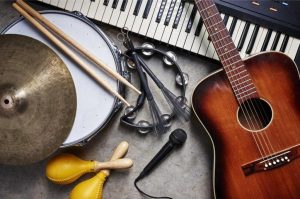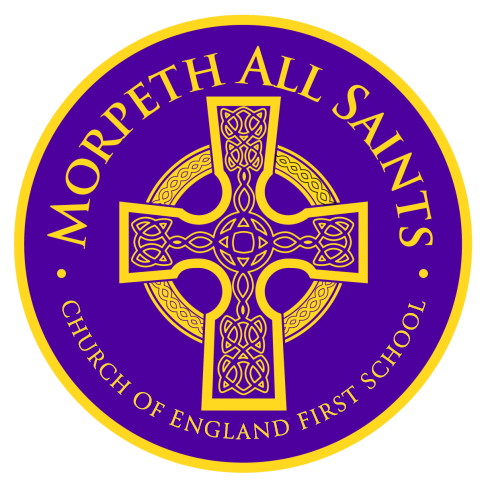Music here at Morpeth All Saints…

Music is a universal language that embodies one of the highest forms of creativity. A high-quality music education should engage and inspire pupils to develop a love of music and their talent as musicians, and so increase their self-confidence, creativity and sense of achievement. Here at Morpeth All Saints, our intent is that children are encouraged to make music and to develop an appreciation of different types of music. Throughout the academic year, all children will be invited to take part in our school choir group, Christmas Nativities, carol concerts, Collective Worships and end of year productions. Children are given the opportunity to learn an instrument in class but also through professional tuition.
Intent:
Staff are committed to offering an inclusive and engaging curriculum to all pupils, which inspires and motivates our children throughout their musical journey.
At Morpeth All Saints we embrace Music as a universal language that embodies one of the highest forms of creativity. A high-quality music education should engage and inspire pupils to develop a love of music and their talent as musicians, and so increase their self-confidence, creativity and sense of achievement. As pupils progress, they should develop a critical engagement with music, allowing them to compose, and to listen with discrimination to a range of musical genres, offering well considered opinions and feedback to each of them.
Our Music curriculum at Morpeth All Saints nurtures the intent to inspire creativity and self-expression throughout our children’s musical journey as they use music as a platform for connecting with others. It is our intention to foster a lifelong love of music through exposure to a range of diverse musical experiences, allowing our children to respond to different styles of music, find their voices as singers, their confidence as performers and their creativity as composers.
Implementation:
Children at Morpeth All Saints learn to discuss both individual pieces of music and genres and comprehend their specific individual parts, elements and features. They learn to sing with increasingly accurate pitch, find and feel a pulse, perform rhythms, compose their own melodies and harmonies both individually and as part of a group.
The Music curriculum at Morpeth All Saints ensures that children are given opportunities to sing, perform, play, conduct, listen and evaluate.
We embed this ethos via high quality classroom teaching for the minimum duration of one hour per week in addition to weekly singing assemblies, opportunities for performance to wider audiences both within and independent to our wider school community, the learning of tuned and un-tuned instruments, and the joining of County wide musical ensembles.
The elements and features of music taught through explicit classroom teaching during Music sessions ensure children are confident in the use of Musical vocabulary (The Language of Music), that they are able to discuss and evaluate the performance of music, and understand how it is made, appreciated and scrutinised. Throughout direct teaching sessions, from EYFS to KS2, children are taught to play a range of un-tuned percussion instruments, to aid their learning of and embed their knowledge of both rhythm and pulse. In KS1 and KS2, children are given the opportunities to learn tuned instruments, including the glockenspiel, and in doing so, begin to understand the basic principle of making notes, as well as experimenting with the reading of musical scores and the devising of their own scores using basic musical notation. Children are also given the opportunity to compose appropriately, focussing on the different dimensions of music, which will ultimately nurture their understanding when playing, listening to, or analysing music.
Impact:
At Morpeth All Saints we assess the impact of our music curriculum in many different ways. This begins with the use of formative assessment within lessons and targeted feedback at the point of learning, both in whole class lessons and during small group music tuition. End of unit performance pieces are recorded either as a whole class or as part of a wider school performance and are assessed against the desired skills and knowledge relevant to the specific year groups. These termly assessments against end of year expectations are used to inform next steps for cohorts in their musical learning journey. Floor books are used in addition to these recordings as a celebration and record of pupils learning. Ongoing assessment of children’s enjoyment and appreciation of the music curriculum occurs through formal and informal pupil voice feedback.

